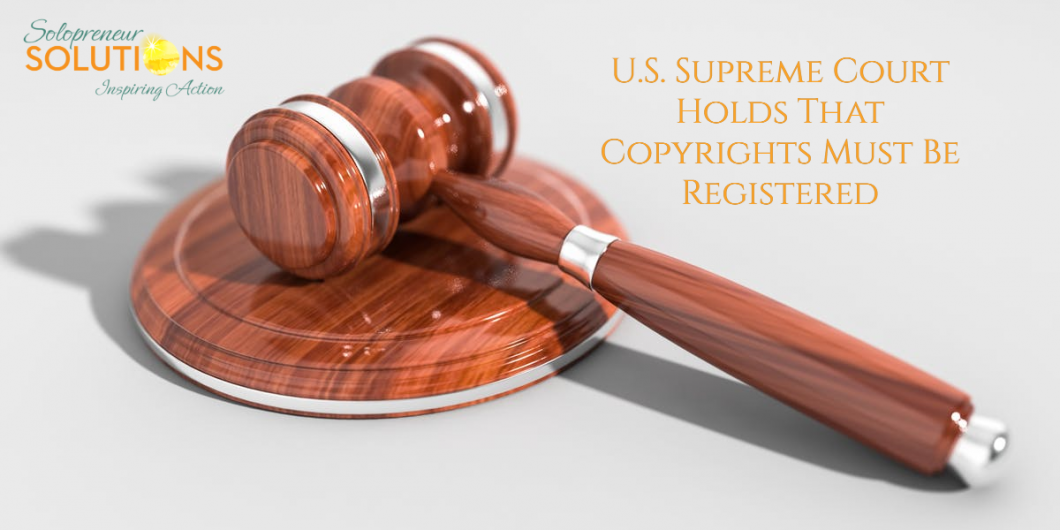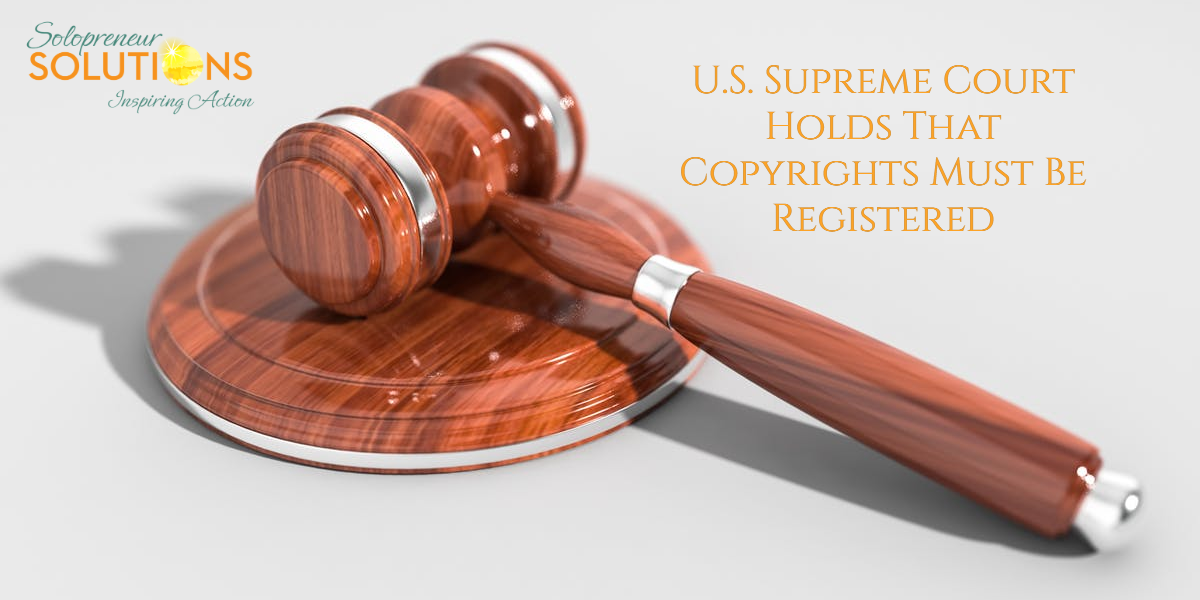U.S. Supreme Court Holds That Copyrights Must Be Registered


Last week, the U.S. Supreme Court ruled that copyrights must be registered at the U.S. Copyright Office prior to beginning a lawsuit targeting the infringed work. Before, an application for registration was sufficient.
This has heightened the importance for copyright holders to register their property with the U.S. Copyright Office. This is especially important if they want to be able to back up their rights as an American citizen. The U.S Copyright Office already offers numerous financial incentives for copyright holders to register their work.
Expedited registration will continue for a fee. However, with this new ruling, copyright holders are probably not going to be able to withstand such a delay. Even a few weeks can lead to their brand or work receiving substantial damage. This is particularly important for copyright holders looking for some sort of preliminary injunctive relief, such a temporary restraining order.
This new legislation has shaken the world of copyright law. 17 U.S.C § 411 stated that copyright claimants must have their copyright at least preregistered before bringing suit to court.
There are exceptions. 17 U.S.C. §411(a) states that there are exceptions for morality rights suits, foreign copyright, and live broadcasts. Foreign copyright does not need to be nationally registered in order to bring suit under the Berne Convention.
The Supreme Court faced this dilemma in Fourth Estate Public Benefits Corp. v. Wall-Street.com. Fourth Estate filed suit after allowing Wall-Street.com to display its work without permission. These works were licensed prior to the canceled agreement between the two parties. When Wall-Street.com failed to remove the Fourth Estate’s copyright, Fourth Estate took action.
There has been a long divide in the Circuit as to what should be considered copyright “registration”. Should the date of registration be from when the application was started or fully processed?
Justice Ginsburg, while writing unanimously, stated that the application had to be fully completed before a lawsuit can be used to enforce copyright law. However, this application process can take up to months to complete. The Supreme Court noted that these exceptions led to a perspective that registration is the completion of a process. Justice Ginsburg also stated that §411(a) had an exception relating to the possibility that a plaintiff’s application for registration was denied. Justice Ginsburg wrote that for an application to be denied, it would have meant the application went through its full process.
The costs of registering work at the Copyright Office is typically around $55. This fee will sometimes be as low as $35. But, the processing time typically takes half a year to complete.
Plaintiffs seeking expedited registration can be an expedited processing fee. This costs $800 and can cut the processing period to 1-2 weeks. An additional fee is required for title transfers.
Even with the expedited process, 1-2 weeks can be a long time, especially for those seeking immediate action to pursue an infringement suit. The impact of this recent Circuit holding has made the registration process all the more important. You should constantly register your work and do it as early as you can.
This makes registration all the more important. Copyrights must be registered promptly! Don’t leave it for later. Register your copyright as soon as possible to ensure your work is protected. The U.S. government also provides a number of incentives for early registration.
If you register your work prior to infringement, or within the first few months of your work being published, then you’re eligible to recover attorney fees and statutory damages.
Many law firms won’t be interested in your infringement suit unless you are registered with these financial incentives in mind. This opinion can directly impact the lawsuits occurring in the media world.
